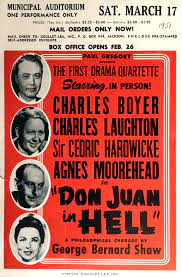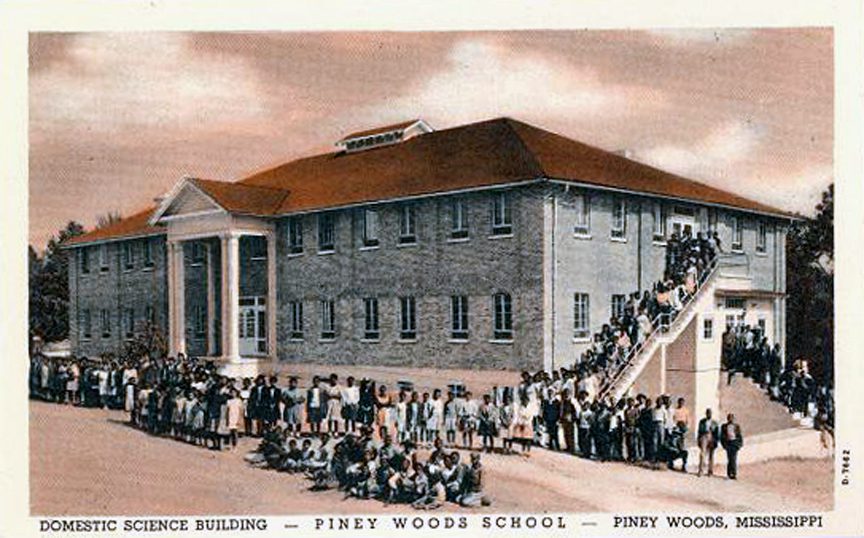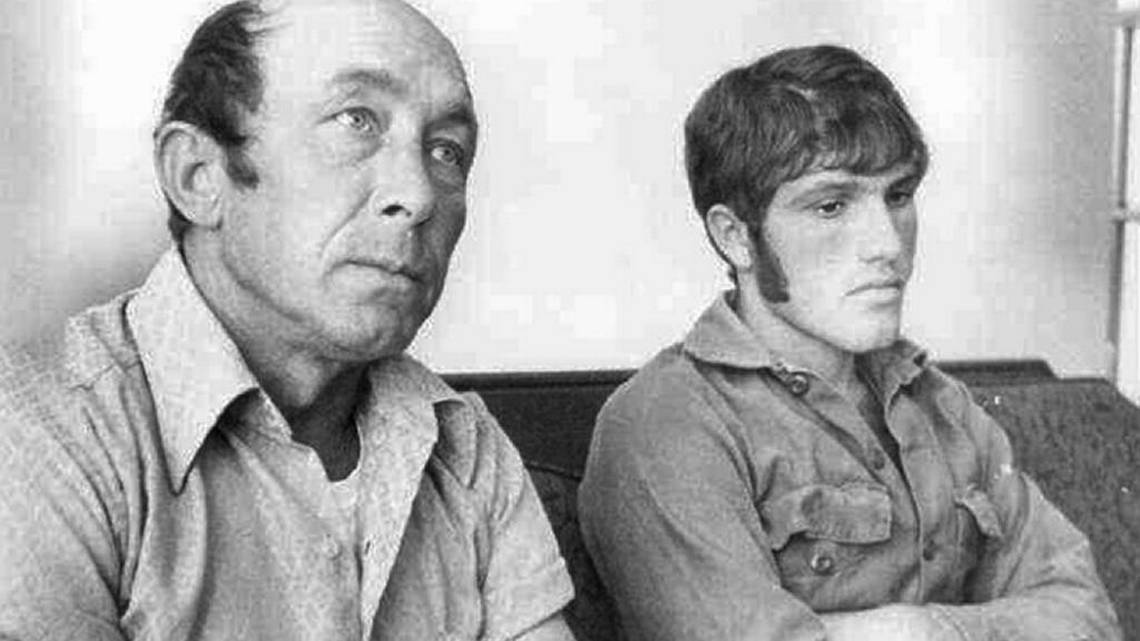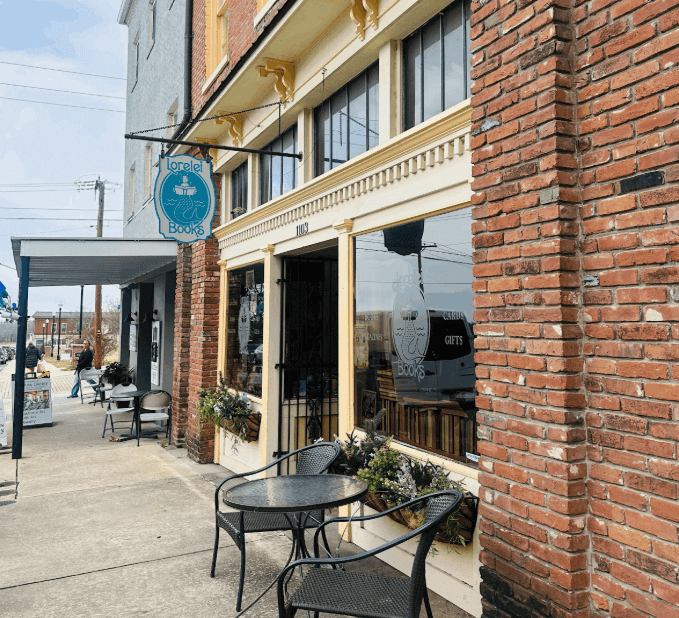
Near the start of the Great Depression, Armand Coullet came to Mississippi, bringing a generation of entertainment with him.
On Saturday, March 17, 1951, the stage of Jackson’s Civic Auditorium supported a cast of players the likes of which never had and has not since tread the boards in the Capital City. As the very Devil himself, Charles Laughton led Agnes Moorehead, Charles Boyer and Sir Cecil Hardwicke in a surprisingly successful enactment of Shaw’s Don Juan in Hell.
The review at the time in the Clarion-Ledger (“Don Juan in Hell a Big Hit Here”) stated the Jackson audience was thrilled with “Agnes Moorehead’s amazing transformation from a woman of 77 at death to a lady of 27 in Hell,” adding that “Laughton stated categorically that he is not ‘the beefy bird of comic strip fame.’” One year later, Time magazine noted the production’s tour had amassed gross profits of over $1 million.

The Jackson performance was engaged by a man who recognized the city had an earnest yearning not only for literature, but for music, for lights, for the engaged delight of people in a body. The laughter, the suspense, the applause. That man, Armand Coullet, provided Mississippi’s capital with over three decades of dazzling entertainment.
According to Jackson historian Harry Brown, “About a decade after H. L. Mencken declared the South “the Sahara of the Bozart,” Armand Coullet arrived on the Jackson scene to do something about it.”
Coullet quickly established himself as the city’s resident Frenchman, a position he proudly made the most of and which, of course, carried a certain primacy in cultural affairs. Mr. Coullet was actually from Algiers. But that was certainly close enough to the Riviera for Jackson society of the day.
Eventually he became the town’s foremost impresario, bringing notable entertainers and productions not only to Jackson but to other cities in the region. The Coullets—his wife Magnolia was an accomplished vocalist as well as being Chair of Foreign Languages at Millsaps, and his son ‘Tink,’ who went on to the Broadway stage and beyond—were welcomed in the very highest social circles. Armand proved a highly valued addition to any gathering. He naturally had an approving and charming eye for the ladies, but of course all with courtly decorum.
Camille Saint-Saëns
Armand Coullet was born in 1899 to a well-to-do French family that had relocated to Algeria shortly after France conquered the North African country in the early 19th century. His father was a French civil servant. He attended public schools in Algiers, graduating from the French Government School of Topography. He also graduated from the Ecole Nationale des Beaux Arts with the Premier Prix in violin, conducting and orchestration. Advanced study in conducting and orchestration was completed with composer and conductor Camille Saint-Saëns, and was later assistant to Saint-Saëns as concertmaster of the North African Symphony Orchestra.

He continued his violin studies in France at the Conservatoire de Paris; when Armand completed his musical training, his father and mother, Eugene and Marguerite, presented him with a fine violin made in 1667 by Francesco Ruggieri, who served as an apprentice in the workshops of Stradivarius. Coullet played first violin in the Opera House in Algiers for two years and directed his orchestra in the city’s leading hotels. He also served three years in a field artillery unit of the French Army during World War I.
Coming to America
Coullet came to the United States in 1924. In an interview fifty years later, he recalled, “The only thing I had was my violin and $27, but I had the world by the tail. When I got off the boat, there was an agent standing there who asked me in French if I played the violin. He gave me a job right there on the spot with the Boston Little Symphony.”
As concertmaster of the Boston Little Symphony Orchestra, Coullet traveled with the Chautauqua Tours, and for the next several years, he conducted his own orchestra in various New England resorts and spent a year as first violinist in the Roxy Theatre Orchestra in New York City. He first came south with various road shows and located at Palm Beach, Florida with his own orchestra.
He opened and directed the Academy of Music in West Palm Beach, with a faculty of 12 and an enrollment of 140 students. While in Palm Beach, Coullet regularly heard residents’ complaints about the town’s lack of theatrical offerings. Together with a local theater owner and three partners, Coullet contacted New York producer Lee Shubert and convinced him to send a touring company of George White’s Scandals to Palm Beach. The show was a hit and Coullet was bitten by the promoting bug. The itch would last the rest of his life.
The Mississippi Connection
The devastating 1928 Okeechobee hurricane that practically destroyed West Palm Beach ended Coullet’s career there. He went back to New York. While there, Hazel Chisholm, who was then working for Jackson radio station WJDX, called him to come to the city.
When he arrived in the Jackson, he gave his two weeks’ notice on his first day at the station. “I saw the town and thought, ‘Oh, my God,’” Coullet recalled fifty years later. “It was so primitive. They had streetcars being pulled down Capitol Street by mules. I knew the town had potential, but potential was for the future. I wanted to leave immediately.”
But he was persuaded to stay, crediting his decision to the kindness of his employers. It was 1928, and in those days radio stations provided their own music. Coullet conducted a 14-piece orchestra for WJDX. He originated special instrumental and vocal programs in classical, semi-classical and popular music.
He also met a young lady, Magnolia Simpson, from Madison, Mississippi, who was later to become Mrs. Coullet. Magnolia, Mrs. Sarah B. McLean, and Coullet broadcast every Sunday afternoon from the old Century Theatre the highly successful Rice Dream House program, sponsored by Rice Furniture.
Fellow musician, and ofttimes traveling companion, Muller Adkisson remembers, “During the Depression, Armand played violin in the WPA orchestra and he said that’s what kept them going, what put food on their table. He had married Magnolia at some point in there. She taught both voice and Latin at Millsaps College. Later she taught German. WJDX’s original studio was in the Lamar Life building on one of the upper stories under the clock tower. Later when the Heidelberg Hotel added the upper six stories to their 12-story building, they added two stories that weren’t accessible by the elevator. WJDX moved there.”
Rise of the ‘Impresario’
In 1935, Coullet was instrumental in organizing the Jackson Symphony Orchestra and in 1937 he originated the All-Star Series (now a part of the Jackson Music Association). Coullet also found a theatrical vacuum in Jackson similar to the one in West Palm Beach, so he again contacted Schubert, who persuaded New York agencies to place Jackson on their lists; it was a natural stop between Memphis and New Orleans, he reasoned with them.

“Because of union rules traveling shows could only travel so many miles a day,” Adkisson said, “so Armand was often able to bargain them down, get shows here, even though Jackson audiences weren’t that big and couldn’t afford the big shows. But often because of the rules somebody would call him up and say, ‘We have to have a show in Jackson, what can you pay us?’ And he got a lot of good shows here that way.”
His first Broadway production in Jackson was Blossom Time in 1935. Coullet later said, “(Being an impresario) might sound romantic and fascinating to some people, but it is hard work and full of worry.” After swinging the deal to bring Blossom Time he said he got the stagehand bill and it scared him so much he almost backed out.
The Stars Come Out

Many names headlined his shows through the years: Tallulah Bankhead, Helen Hayes, Ethel Barrymore, Nelson Eddy, Jeanette McDonald, Bette Davis, Grace Moore, the Don Cossack Chorus, Bob Hope, Marion Anderson, Eva Le Gallienne, Joseph Szgeti, Fritz Kreisler, Richard Crooks, Albert Spalding, San Carlo Opera Company, NBC Opera Company, James Melton, Gladys Swarthout, Sigmund Romberg, Nadine Conner and Guy Lombardo. His encounters with famous performers were brief, and he said, “you’d have to see them more than I do to feel that you know them.”
For over three decades, Armand Collet Associates sponsored shows in 15 cities and 12 states and across the South from El Paso to Birmingham, but beginning in the mid-1980s, Coullet limited himself to the presentation of Broadway theatre in Jackson and only a few other Southern cities. Included have been: Hello, Dolly!, Fiddler on the Roof, Man of La Mancha, Zorba, My Fair Lady (which ran for seven weeks), Mame, Cabaret, 1776, Your Own Thing, I Do, I Do, George M and a sneak appearance by Mantovani and his Orchestra. Coullet said he considered bringing the Beatles to Memphis in 1966 the crowning glory of his career, but his role in the Fab Four’s appearance at the Mid-South Coliseum can’t be substantiated.

“The big ones carry me,” Coullet once said, referring to smash hits such as My Fair Lady and Hello, Dolly!, but he had his share of bombs. His biggest bust as a promoter was Cabaret in Jackson. Coullet considered Grace Moore and Liberace his most glamorous stars. Liberace sold out twice.
“Armand always said how surprising it was to think of the large number of elderly women who came to Liberace’s performances,” Adkisson said. “It was a matter of sex appeal, or what they thought was sex appeal, since of course he was gay. Anyway, Liberace would invite the women in the audience to come backstage after the performances, and he’d wink and mug, and say, ‘Oh, what is your name, darling?’ and the woman would say like ‘Mary’ or something and Liberace would go, ‘Oh, my dear Mary!’ or something. Armand said the first time Liberace appeared in a city he might make a little money for his appearance, might even lose a little, but Liberace would come back two years later, and the promoter would make a big profit. That was Liberace’s modus operandi, that he could successfully tour all over the country because he felt a responsibility to the local promoter. Armand had Liberace here three times with sold-out houses. The little old ladies would like up and Liberace would take an hour or more to schmooze with them.”
Curtain Call
Even after decades living in Mississippi, Coullet retained his French accent. “It’s the one thing I’m stuck with and can’t lose,” he once said. “I’m not trying to lose it. It’s my natural way of speaking. You must realize that when I first came to this country, the only words of English I knew were ‘yes’ and ‘no.’ I had to learn English by myself. I would read the newspapers and, when I found a word I didn’t know, I would write it on a little piece of paper and tack it on the wall. I’d see the word every day until I learned it, then I’d take it down. By that time, there would be ten or more new ones.” Muller Adkisson recalls that when Coullet promoted shows in New Orleans and south Louisiana, he would give the promotional commercial in English, and then he would give it in French. “Of course people flocked to the shows because they loved hearing the promotions in their everyday speech. ”
In his last published interview, in May 1977, the 79-year old Coullet, preparing for an upcoming season which was to include the touring company of the Broadway production of Welty’s The Robber Bridegroom as well as My Fair Lady and Same Time Next Year, said, “In this business you can’t slow down. If you slow down, you’re dead. It took me 40 years to build up the following I have. There’s no retirement for an impresario. I’ll be retired when they put me in a pine box. Sure, I’ve slowed down a little with age, but not so you can tell. You can’t kill a good Frenchman.”
Coullet died in Jackson on New Year’s Eve, 1982.











